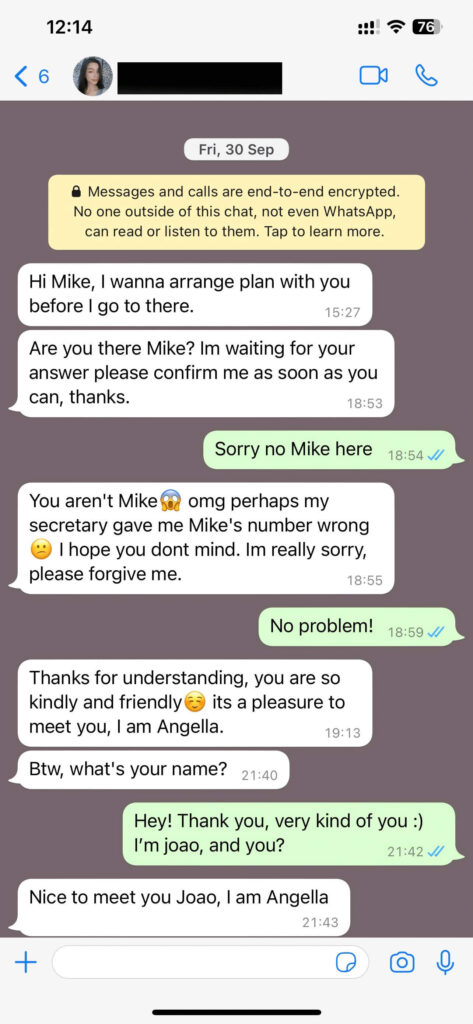421

WhatsApp scams are deceptive schemes designed to trick users of the messaging platform into revealing personal information, sharing sensitive data, or becoming victims of financial fraud. Scammers can use a variety of tactics to carry out these scams, such as impersonating trusted contacts, sending malicious links or attachments, or manipulating users into providing confidential details.
Here are some common WhatsApp scams to be aware of:
- Impersonation scams: Scammers can create fake WhatsApp accounts by impersonating someone you know, such as a friend, family member or co-worker. They may demand money claiming to be in an emergency or in need of immediate financial assistance.
- Lottery or prize scams: You may receive a message that you have won a lottery or prize often from a well-known company or organization. To claim the prize, scammers will ask for personal information or request payment of processing fees, taxes or delivery charges. Remember, legitimate lotteries or giveaways will not ask for payment to receive your prize.
- Phishing scams: Scammers send messages from WhatsApp or other trusted entities, urging you to click a link to verify your account, update your payment information, or confirm your personal details. These links lead to fraudulent websites designed to steal your sensitive information.
- WhatsApp Gold or Premium scams: Scammers may claim to offer a special version of WhatsApp with advanced features, such as WhatsApp Gold or WhatsApp Premium. They may ask you to click on a link to download or upgrade your WhatsApp, but instead, the link may install malware on your device.
- Investment scams: Scammers may contact you on WhatsApp with promises of high returns on investment or cryptocurrency trading opportunities. They may ask for an initial investment or request access to your financial accounts, which can lead to potential financial loss.

To protect yourself from WhatsApp scams, consider the following precautions:
- Be wary of messages from unknown contacts or messages that seem suspicious, even if they are from someone you know. Verify any unusual requests with the person through a separate communication channel.
- Avoid clicking links or downloading attachments from unfamiliar sources, especially if they ask for personal information or financial details.
- Enable 2-Step Verification in your WhatsApp settings to add an extra layer of security to your account.
- Update your WhatsApp application regularly to make sure you have the latest security features and bug fixes.
- Educate yourself about common scam techniques to recognize and avoid potential scams.
- Report any suspicious messages or contacts to WhatsApp and block or remove them from your list.
Remember, it is important to be vigilant and take precautions when using WhatsApp or any other messaging platform so that you can protect yourself from falling prey to scams.
